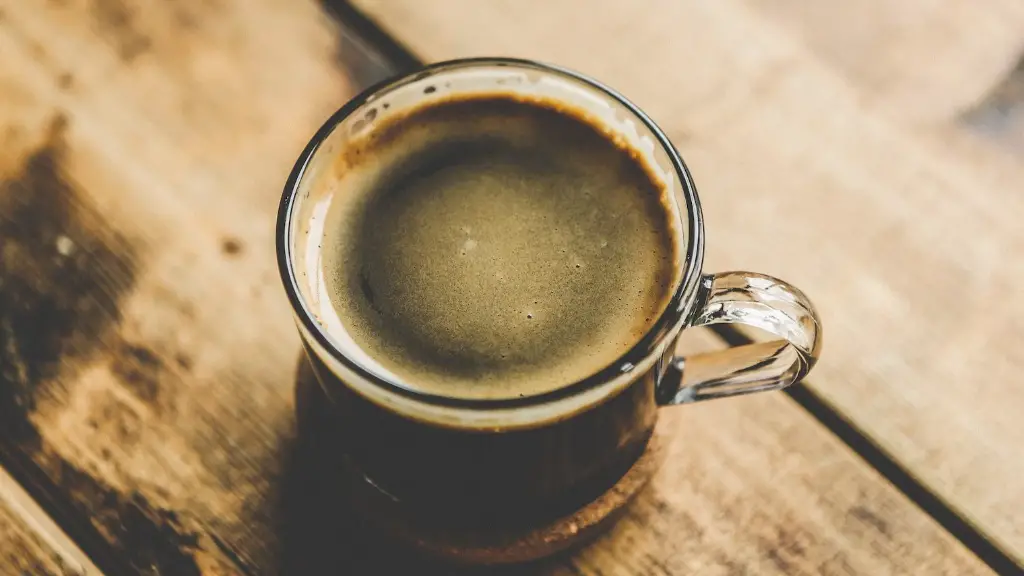Introduction
Coffee and physical activity have been closely linked for centuries, long before the invention of Starbucks. You may have even heard that coffee energizes you for your workout, but what about after? Does drinking a cup of java following exercise provide the same boost or is it counter-productive? Research on this subject is inconclusive, so it’s important to understand the main points before making a decision about whether to pour a cup of coffee after a great workout.
What does the research say?
Studies have shown that caffeine can help during exercise, especially when you are tired. It may improve mental alertness, physical endurance and help you stay focused by blocking certain compounds in the brain. However, studies on the effects of coffee after exercise are limited. Dr. Elizabeth Jackson advised that “because of the lack of research, we can’t definitively say that coffee after exercise is helpful or harmful.”
In a study published in the Journal of Clinical Nutrition in 2017, researchers measured the effects of coffee consumption after exercise on anaerobic power, aerobic endurance, and strength. They found no significant difference in any performance measures between the coffee drinkers and the control group. This study concluded that coffee consumption after exercise does not improve subsequent physical performance.
Caffeine intake and Dehydration
Caffeine is a diuretic, meaning it can cause the body to lose fluids through urination. Since dehydration can impair physical performance, it is best to be aware of the amount of caffeine you are drinking. Drinking too much coffee while exercising can cause dehydration and muscle cramps. Dr. Jackson advises that “if you drink coffee during or right after exercise, it’s best to stay well hydrated by drinking plenty of water.”
Mental benefits
Coffee consumption may provide mental benefits both during and after exercise. A study published in Frontiers in Psychology in 2018 showed that participants who consumed coffee before and/or after exercising experienced less fatigue and reported feeling better than those who did not. The study concluded that coffee can act as a cognitive enhancer by reducing mental fatigue.
The Bottom Line
The general consensus is that coffee after exercise may provide some benefits in terms of mental alertness, focus, and reduced fatigue. However, the research on this topic is limited, so it is important to consider the possible risks. When consumed in moderation, coffee may be an effective post-workout pick-me-up.
Coffees Role in Muscle Growth
Studies have suggested that caffeine may stimulate muscle growth, though additional research is needed to confirm this. Researchers at the University of Sao Paulo examined the effects of caffeine on skeletal muscle of rats. They found that rats who were given caffeine had increased expression of important genes that are associated with muscle growth and recovery. The researchers concluded that their findings suggest that caffeine may play a role in muscle growth.
Coffees Potential Role in Weight Loss
Coffee can also have an effect on weight loss. A 2007 study found that caffeine was linked to increases in energy expenditure, meaning that drinking coffee resulted in participants burning more calories. The study concluded that short-term caffeine intake can increase energy expenditure in normal-weight and overweight individuals.
Other Potential Benefits
Other potential benefits of coffee after exercise may include reduced inflammation and improved cognitive benefits such as memory and concentration. A study published in the Journal of Nutrition, Health, and Aging in 2014 looked at the effects of coffee consumption on inflammation in elderly individuals and found that coffee may reduce inflammation levels.
Additionally, a 2019 study published in Nutrients examined the effects of caffeine on memory, attention, and executive function. The study found a significant positive effect of caffeine on several aspects of cognitive performance in older adults. The researchers concluded that consuming coffee after exercise may improve cognitive performance.
Nutrition Considerations
It’s important to consider nutrition when drinking coffee after exercise. Dr. Elizabeth Jackson advises that “one should be aware that coffee may have empty calories and additives such as sugars which may counteract the health benefits.” For example, adding sweeteners to coffee can add extra calories and sugar to your diet. Additionally, coffee drinks from coffee shops may add other unhealthy ingredients such as whole milk, flavors, and syrups.
The Benefits of Moderation
In general, coffee should be consumed in moderation if one wishes to reap the most benefits from it. Caffeine is addictive and can have adverse effects on sleep quality if consumed in high amounts. The American Academy of Sleep Medicine recommends limiting caffeine consumption to no more than 400 milligrams per day. Additionally, drinking too much coffee can lead to headaches, irritability, and other side effects.
Coffees Role in Overall Health
Despite the possible risks associated with overconsumption, it’s important to remember the benefits of drinking coffee. In moderation, coffee can provide physical and mental health benefits. Coffee is a natural source of antioxidants and may reduce the risk of some types of cancer, type 2 diabetes, and liver disease. It may also improve mental alertness and focus, helping to boost productivity.
Conclusion
The decision to drink coffee after exercise is individual and should be based on understanding and respecting one’s own body. More research is needed to draw firm conclusions about the effects of coffee after exercise, but one thing is for sure – moderation is key. Understanding one’s own body and caffeine needs, staying adequately hydrated, and making smart nutritional choices will help ensure that the benefits outweigh the risks.



